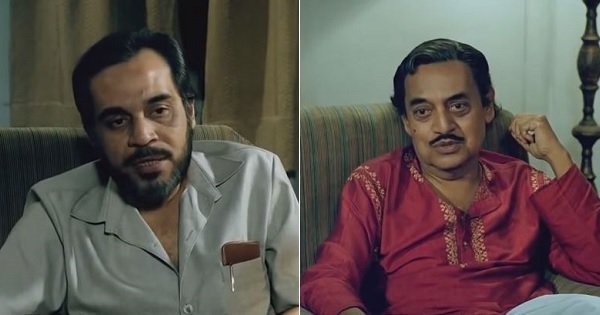
Agantuk (The Stranger) was the last film directed by Master Satyajit Ray. In many ways, it is his parting speech to his audience- present and future. During the shooting of Agantuk, Ray was suffering from continuously deteriorating health conditions. As a result, most of the shooting had to happen indoors.
But, from time and time again, filmmakers have been proving that one does not need expensive cameras, illuminating locations, or even an experienced crew to make great cinema. Despite being made with a low budget and lack of resources, Satyajit Ray's Agantuk is an impeccable case study of how Tarantino was right when he said that if we really love cinema with all our heart and enough passion, we can't help but make a good film.
So, what brings Agantuk so close to my heart? I would say authenticity. This story is anything but "usual". A self-proclaimed globetrotter and archaeologist comes into a wealthy Bengali household and claims to be the uncle of the housewife. Is he a scammer? The film answers this question at the end, although it did not matter by then. What mattered was how the stranger interacted with the family members and their friends. What mattered was his words and actions throughout his stay in that household. But his dialogues were not merely words written for a character in the film. Satyajit himself was speaking through his character.
Ray famously told Utpal Dutt, the lead of the film, that the character was only saying what Ray himself believed and wanted to tell the audience. Ray wrote it so that he could leave his last words spoken to humanity. Perhaps he understood that the almighty was calling his name.

Yet a mediocre director could have turned the same script into a monotonous hour-long preaching session. However, what makes this film special is the authenticity Ray maintains throughout the film. The characters do not seem out of place. The philosophical conflicts were wrapped up perfectly in believable conversations. It is not just one character ranting about civilization- full-fledged debates are happening between characters standing at the opposite ends of the ideological spectrum. This makes this "preachy" film engaging. The audience not only listens to the dialogues but with every argument they evaluate and think for themselves. The characters are not only refuting each other, they are boldly asking the audience what they believe.
So many films fail in this regard as makers do not realize that the purpose of cinema is not simply to deliver a message like a billboard. Cinema serves the function of drawing the viewers into the narrative, capturing them in the world of the film, and making them feel what the characters are feeling. That is what all art forms do, feel and let feel. Long monologues lecturing the audience about social issues do not work for me. And I believe it doesn't work for others as well.

Ray's writing is natural. He didn't write to educate people; he wrote to express himself. And how else can we express ourselves to the fullest except by confronting the opposite side of the spectrum and not denying it? Because when an idea gets challenged- only then can it truly flourish. Ray was a man in conversation with the so-called "modern society". And Aguntuk is only a glimpse of it.
Lastly, if Agantuk came out in 2024, I am sure it would be considered "OTT material," an art film- "non-commercial" cinema. I think it is sad. Agantuk was not only a national but an international hit back in 1991. A lot has changed since then. I would be stupid to expect to stop these changes from occurring at all. But the least we can do is not make assumptions about a film based on the label attached to it by the "media". We must use our own intellect and judgment to make sense of cinema. Our opinions might not always be correct, but having one lets us converse with the artist. That in and of itself is liberating, warmly intimate. Cinema can be good, bad, great, or ugly. It can be novel or traditional. It can have many adjectives. However, "good but not profitable" shouldn't be one of them.